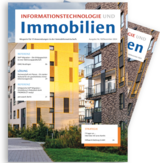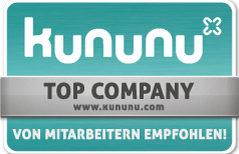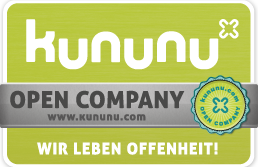Property as a cost driver? What BASF, Paderborn and TU Dresden have in common

Corporates – “new” players with their own requirements
These market players have entirely different objectives to those of classical property companies, and as such we risk not being sufficiently informed about them. Major industrial companies – the corporates and non-property companies (classic examples include hospitals, universities and municipal building management authorities) – use real estate simply for providing their services. In other words, the companies’ own real estate is purely for their own use (e.g. in the form of production halls, office blocks or educational institutions) and is thus treated as a means to an end. Nevertheless, real estate that is required for operations has a financial impact on the company. After all, whether purchased or rented, real estate always involves costs, with 57 percent of these costs attributable to rent or depreciation.2 To ensure that the “real estate” operating resource does not become a cost driver for companies, they need a comprehensive overview of their real estate portfolios and efficient real estate management.
Corporate real estate management
Professional management of corporate real estate is summarised under the term Corporate Real Estate Management (abbreviated to CREM), the possibilities of which involve increasing value and cutting costs without changing or even impairing the company’s core business. But what are the benefits of CREM? Knowing how many people work in an office, for example, allows companies to identify unnecessary vacancies, thus enabling them to implement measures to optimise the utilisation capacities of the buildings. In the same way, awareness of existing contracts provides information regarding which rental contracts need to be terminated or renegotiated in good time. In two examples, it soon becomes clear that the various information regarding the real estate portfolio – pooled in a universal database – allow the company’s management to conveniently make strategically sustainable decisions.
Other aspects are also leading companies to focus their attention on CREM more and more; for example, new legal requirements for reporting, compliance provisions and decentral organisational structures. In our globalised world, multi-national corporate groups frequently split their production processes across various sites that also cross national borders. In such cases, portfolio transparency is clearly not a matter of course. In turn, this internationality results in further demands being placed on the management and thus also on the tools (e.g. multi-lingual information and consideration of various currencies and time zones). This complexity already indicates that professional CREM is not possible without intelligent system support.
Professional CREM benefits from intelligent software
The specific requirements of non-property companies when it comes to building and property management, such as fast and cost-effective implementation projects or ease of operation for end users who are not experts in real estate management, make it clear that transparent and efficient business processes are only possible with real estate management software. This results in a genuine business case. Integrated Workplace Management Systems (IWMS) are software solutions that allow the management to reduce costs considerably while increasing productivity. The market for IWMS is diverse and provides a range of solutions, either in the form of individual solutions or as integrated software. SAP is the undisputed market leader for ERP systems3 and provides a standard business software that certainly includes some suitable modules in the area of real estate management, project management and contract management. Those who choose SAP benefit from the numerous capabilities, stability and future compatibility provided by the solution. However, the functional scope and lack of proximity to the target group are significant disadvantages. For example, the SAP standard solution does not provide CAD integration and additional interfaces, so these have to be added through external service providers. This process in turn requires an integration project, which makes the implementation costs unnecessarily high. Overall, the lengthy project implementation is not offset by comparable benefits for non-property companies, whose core business is not property management. On the whole, project-specific programming (customising) and tailored, individual software solutions are too expensive and time-consuming, and their maintenance involves a lot of effort.
PROMOS and CIDEON complete the standard SAP® solution
Thus, the challenge is to provide non-property companies with a template or rapid development solution with a functional scope that is optimally tailored to their requirements and can be implemented with the least possible effort as well as with pre-configured modules. As an innovative system house, PROMOS provides SAP®-based enhancement solutions that complete the standard SAP solution in an optimal way and allow companies to implement an IWMS extremely quickly. The end-to-end solution is based on a complete CAFM from CIDEON including integration of CAD, relocation management, floor-space management, cleaning management and key management. Drawing on 17 years of project experience and expertise in the real estate business, PROMOS also provides ready-to-use solution modules in the areas of maintenance, construction controlling, portfolio management, energy management, contract management and mobile solutions for maintenance or operator responsibility. This enables employees to be assigned tasks, maintenance planned, deadlines for upcoming maintenance to be managed and sustainability strategies to be put into practice. For example, many companies voluntarily commit to energy management, which requires them to meet concrete specifications to reduce CO2 emissions. Yet how can companies prove that they are sustainable if they have no idea how much energy they actually consume? Achieving these sustainability goals thus also requires modern energy monitoring, waste management and intelligent reporting for emissions and certifications. In addition, customers benefit from the extensive range of mobile processes. After all, industrial companies, universities and municipal building management authorities also have to fulfil key compliance obligations and uphold their operator responsibility; for example by conducting property inspections as part of quality assessment and security management, checking the quality of cleaning, or performing any necessary functional checks. With easysquare, PROMOS offers a web-based platform and portal technology that added value beyond this. The possibilities seem endless, from an employee portal with helpdesk support where employees can report a broken printer, for example, to integration of self-service processes for booking rooms or reserving rental cars. Such services help make the workplace more attractive and thus increase employee satisfaction.

 Figure 1: End-to-end solution from PROMOS
in partnership with CIDEON. |

From an operating resource to a profit centre
An IWMS like the joint PROMOS and CIDEON solution allows non-property companies to gain an overview of their real estate portfolios as a first step. This means that, on the one hand, all value flows in the company become visible (e.g. purchase and sale of properties) and, on the other hand, cost drivers can be identified, for instance by allocating properties to specific cost centres. Companies can only start with the actual property management based on this information in a second step; for example, deciding whether new floor space needs to be rented for future growth or whether vacant, unused floor space is available in the real estate portfolio. Do you currently know how many employees are using your buildings right at this moment or the costs that an individual workstation generates? Real estate KPIs provide you with the necessary input to continuously adapt existing structures and identify potential for increasing space and cost efficiency. Space management helps companies to create additional reliable forecasts relating to future use of floor space and to map “what if” scenarios. This aspect is relevant for companies because the future floor space utilisation is directly related to the growth or decline of a company. If the requirements for comprehensive reporting were to be expanded in the future (for example because regular rental contracts have to be accounted for under IFRS in the future), this would have a major impact on the financial performance of a company. This is why tools such as an IWMS, which delivers all information on existing contracts at the press of a button and provides support for seamless documentation, are indispensable. If corporates and non-property companies implement both of these steps, they will inevitably conclude that the benefits of corporate real estate management directly or indirectly result in cost savings and/or potential for increasing the value of real estate, whereby real estate (and its management using an IWSM) should be considered a profit centre rather than an operating resource.
-
“Economic Relevance of Corporate Real Estate in Germany” (2014) study by
Prof. Andreas Pfnür, TU Darmstadt.
-
Report: “Driving an Aggressive Occupancy Cost Reduction Program: A
White Paper for Corporate Real Estate” (2009) by CBRE.
- According to Statista, SAP®’s market share of revenue earned worldwide with ERP software was 24 percent in 2013.
Author:

Thoralf Beyer
Chief Sales Manager
PROMOS consult


